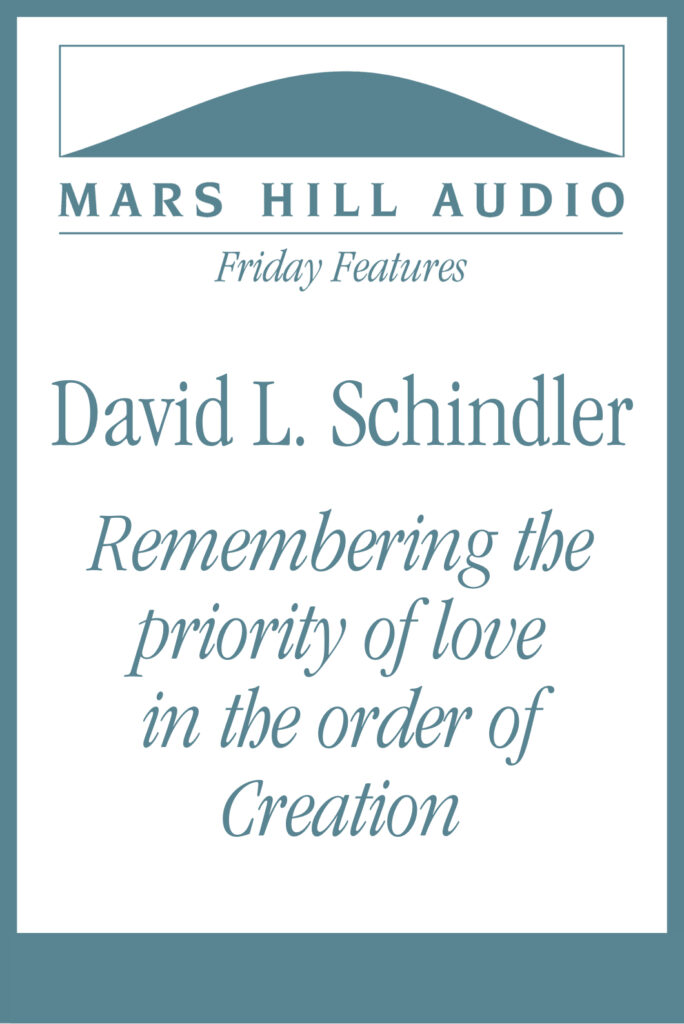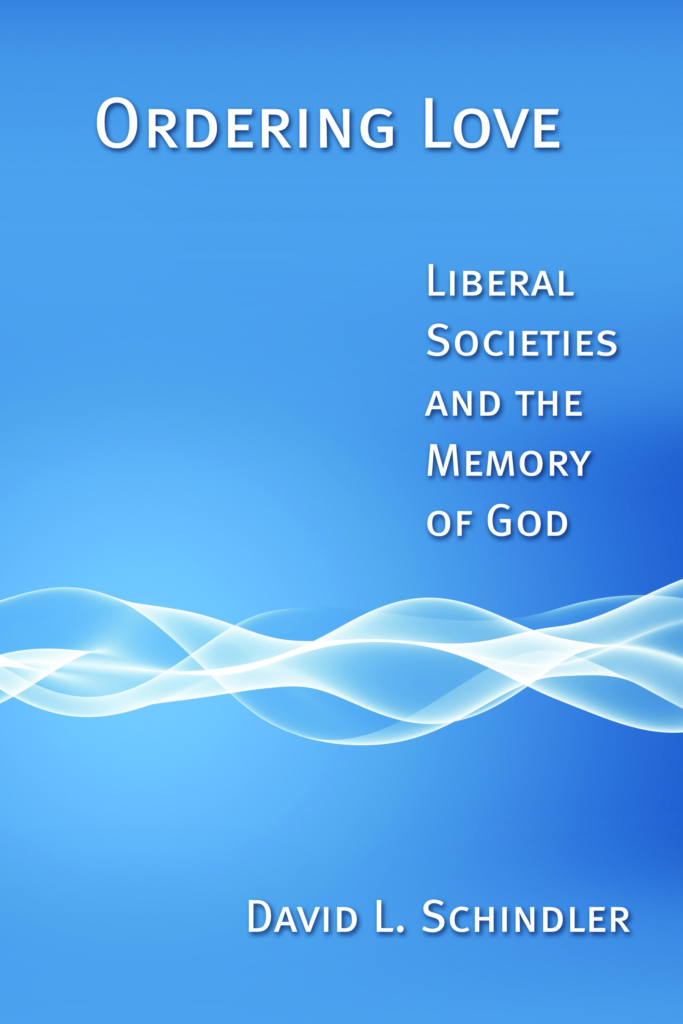
released 12/2/2022
Theologian David L. Schindler died on November 16th at the age of 79. In recognition of the importance of his life and work, today’s Feature presents an interview from 2012 about his book, Ordering Love: Liberal Societies and the Memory of God (Eerdmans, 2011). Schindler saw the marginalization of love — the reduction of love to a matter of private and personal sentiment, piety, or good will — as one of the fundamental disorders of modern culture. By contrast, Christians are called always and everywhere to bear witness to the fact that love is properly understood as “the very stuff that makes our lives and the things of the world real, the basic order of our lives and of all things.”
39 minutes
PREVIEW
The player for the full version of this Feature is only available to current members. If you have an active membership, log in here. If you’d like to become a member — with access to all our audio programs — sign up here.

“The main critical judgment of the book . . . is that modern culture marginalizes love. The logical tendency of modernity, in its dominant liberal form, is to look on love as at best a matter of piety or good will, and not as the very stuff that makes our lives and the things of the world real, the basic order of our lives and of all things. Indeed, modernity’s marginalization of love is bound up indissolubly with its technological understanding of order.” [p. ix]
In modern culture, “The language of love seems therefore, in the end, much more an expression of private piety than of anything like the basic order of things. Certainly it is not a language appropriate or ‘realistic’ for the public-institutional order as expressed in the state, the economy, and the academy.” [p. 3]
“The love, or gift-giving, to which the book’s thesis refers is thus not the love that begins with human agency, and hence is not in the first instance human-centered love. It is on the contrary the love rooted first in God as creator, and is most basically God-centered. But further, it is the love in which all the beings of the cosmos participate, by virtue of their being creatures of God — the love that is therefore centered in the cosmos itself, but only from inside the cosmos’s own centeredness in God.” [p. 4]
“What is essential for my argument, in other words, is that an echo or memory of the natural tendency toward what is good in itself and toward God continues to abide inside this refusal [of God’s love because of sin]; what is ‘ideal’ always remains real, in and through the anamnesis of God and our creatureliness that is given with our very being.” [p. 8]
— from David L. Schindler, Ordering Love: Liberal Societies and the Memory of God (Eerdmans, 2011)